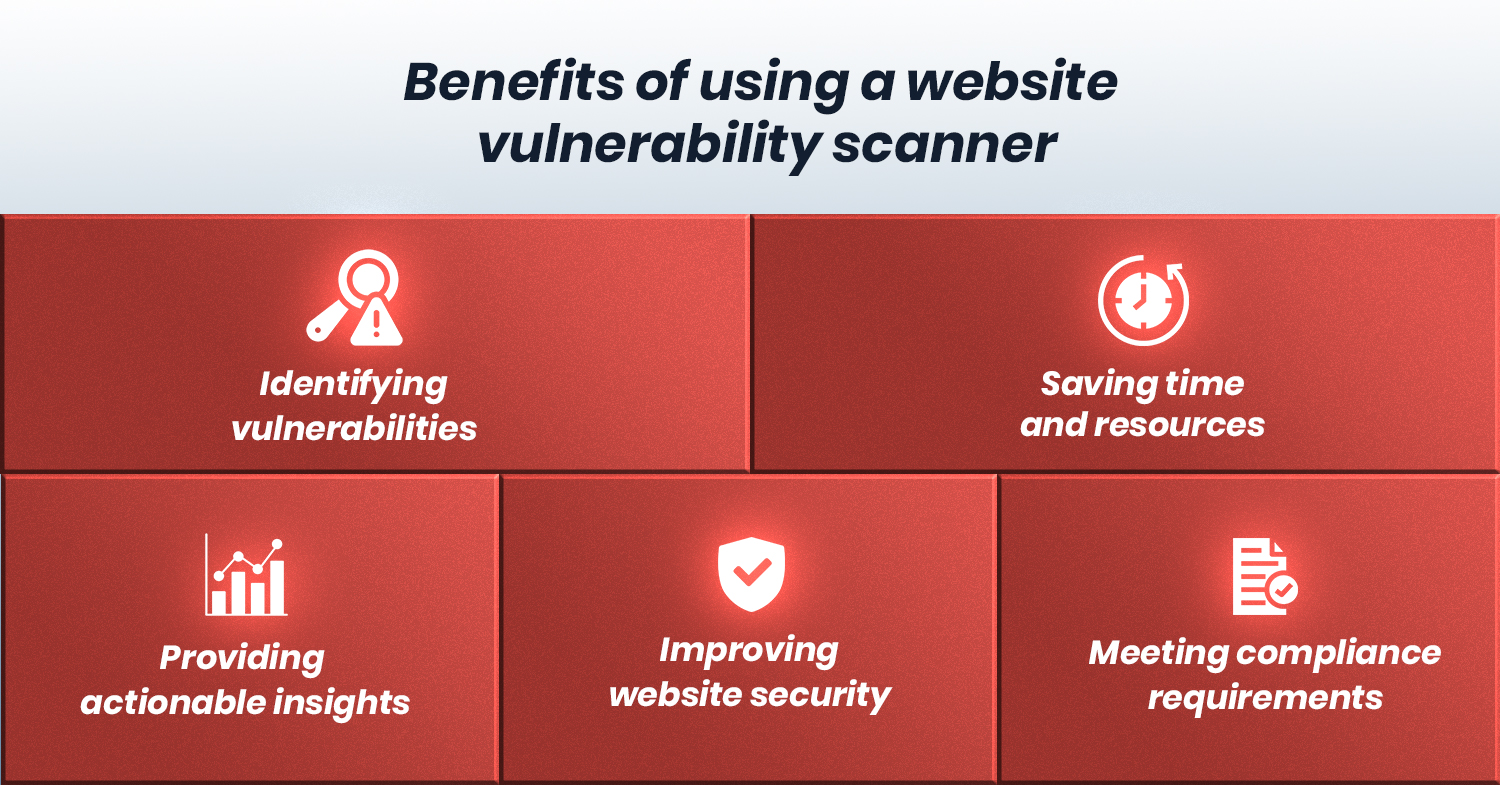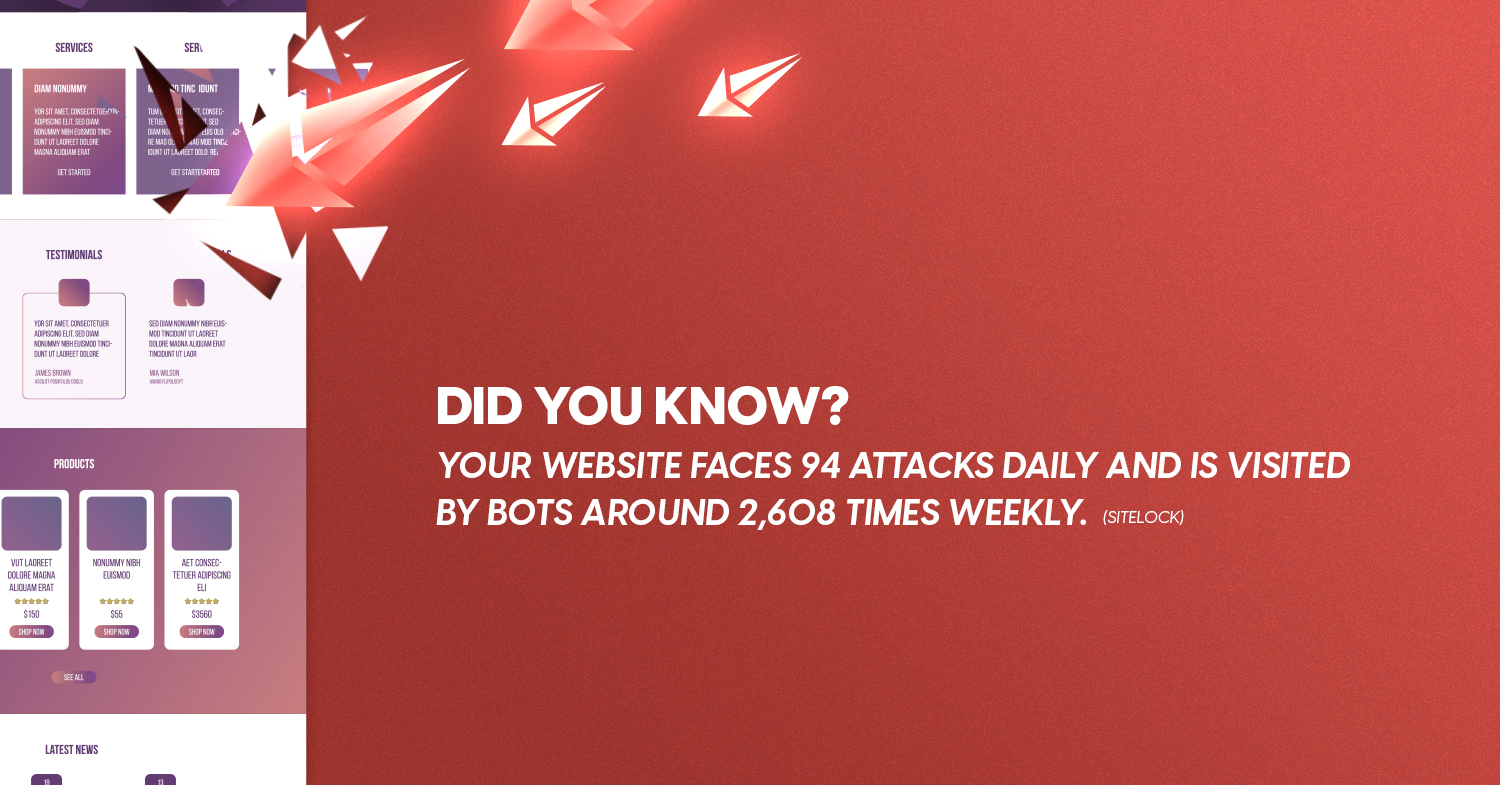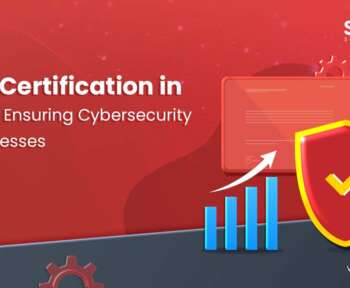In today’s digital age, having a strong online presence is more important than ever before. Whether you own a small business, run an e-commerce website, or simply use the internet for personal reasons, the security of your online assets is paramount. Cyber threats such as hacking, malware attacks, and data breaches are becoming increasingly common, and they can have devastating consequences for your website and your reputation. This is where website vulnerability scanners can help. These powerful tools are designed to identify security vulnerabilities in your website and provide you with actionable insights to help you protect your online assets. In this article, we will explore the benefits of using a website vulnerability scanner and how it can help you safeguard your online presence. So, if you’re looking to protect your website from cyber threats and ensure that your online assets are secure, read on to discover the benefits of using a website vulnerability scanner.
Understanding website vulnerabilities
Website vulnerabilities are weaknesses or flaws in the design, code, or configuration of a website that can be exploited by hackers or cybercriminals. These vulnerabilities can provide unauthorized access to sensitive data, compromise user privacy, and even take control of the website itself. There are several types of website vulnerabilities, including SQL injection, cross-site scripting (XSS), and cross-site request forgery (CSRF), among others. These vulnerabilities can be difficult to detect and mitigate, especially for websites with complex architectures and functionalities.
The importance of website security
Website security is crucial for businesses and individuals alike. A website that is compromised can lead to financial loss, reputational damage, and legal liability. In addition, a website that is not secure can also negatively impact user experience, leading to decreased traffic, engagement, and conversion rates. It is therefore essential to take proactive measures to secure your website and protect your online assets.
Related:- 10 best practices to prevent phishing attacks in 2023
What is a website vulnerability scanner?
A website vulnerability scanner is a tool that scans your website for security vulnerabilities and provides you with a comprehensive report of any vulnerabilities that are found. These scanners use a variety of techniques to identify vulnerabilities, including automated scans, manual testing, and data analysis. The report generated by a website vulnerability scanner typically includes details about the type of vulnerability, its severity level, and recommendations for remediation.
How does a website vulnerability scanner work?
Website vulnerability scanners work by scanning your website for potential security vulnerabilities. They use various methods to do this, including automated scans and manual testing. Automated scans involve the use of software that searches for known vulnerabilities in your website’s code and configuration. Manual testing involves a human tester manually probing your website for vulnerabilities that automated scans may have missed. The results of both automated and manual scans are then analyzed to generate a comprehensive report of any vulnerabilities that are found.
Benefits of using a website vulnerability scanner
Using a website vulnerability scanner can provide several benefits, including:

1. Identifying vulnerabilities
A website vulnerability scanner can identify both known and unknown vulnerabilities in your website. This can help you take proactive measures to fix these vulnerabilities before they are exploited by hackers or cybercriminals.
2. Saving time and resources
Manually testing for vulnerabilities can be a time-consuming and resource-intensive process. A website vulnerability scanner can automate much of this process, saving you time and resources.
3. Providing actionable insights
The report generated by a website vulnerability scanner provides actionable insights into the vulnerabilities that are found. This can help you prioritize which vulnerabilities to fix first and provide guidance on how to fix them.
4. Improving website security
By identifying and fixing vulnerabilities, a website vulnerability scanner can improve your website’s overall security, protecting both your website and your users.
5. Meeting compliance requirements
Many industries have specific compliance requirements related to website security. Using a website vulnerability scanner can help you meet these requirements and avoid potential legal or financial penalties.
Types of website vulnerability scanners
There are several types of website vulnerability scanners available, including:
1. Network-based scanners
Network-based scanners scan your website from the outside, simulating an attacker’s perspective. These scanners can identify vulnerabilities in your website’s network infrastructure, such as firewalls and servers.
2. Host-based scanners
Host-based scanners scan your website from the inside, looking for vulnerabilities in your website’s software, configuration, and code.
3. Web application scanners
Web application scanners are specialized scanners that focus on vulnerabilities in web applications, such as SQL injection and cross-site scripting.
4. Code review scanners
Code review scanners analyze your website’s code for vulnerabilities, providing insights into potential security flaws in your website’s software.

Features to look for in a website vulnerability scanner
When choosing a website vulnerability scanner, there are several features to consider, including:
- Vulnerability coverage: The scanner should cover a wide range of vulnerabilities, including known and unknown vulnerabilities.
- Accuracy: The scanner should provide accurate results, minimizing false positives and false negatives.
- Ease of use: The scanner should be easy to set up and use, with a user-friendly interface.
- Reporting: The scanner should provide comprehensive and actionable reports, with clear recommendations for remediation.
- Integration: The scanner should integrate with your existing security tools and workflows, minimizing disruptions to your existing processes.
How to choose the right website vulnerability scanner for your needs
When choosing a website vulnerability scanner, consider the following:
- Your website’s size and complexity: Choose a scanner that is appropriate for the size and complexity of your website.
- Your budget: Choose a scanner that fits within your budget, balancing cost with features and functionality.
- Your specific security needs: Choose a scanner that addresses your specific security needs, including compliance requirements, industry standards, and best practices.
- Reviews and ratings: Research and read reviews and ratings of different scanners to get a sense of their effectiveness and user satisfaction.
How to use a website vulnerability scanner effectively
To use a website vulnerability scanner effectively, follow these best practices:
- Set up the scanner correctly: Ensure that the scanner is set up correctly, with the appropriate settings and configurations.
- Run the scanner regularly: Run the scanner regularly, ideally on a weekly or monthly basis, to stay on top of any new vulnerabilities that may arise.
- Review the results: Review the scanner’s results carefully, prioritizing vulnerabilities based on severity and potential impact.
- Take action: Take action to remediate any vulnerabilities that are identified, following the scanner’s recommendations and best practices for security.
Conclusion: Taking action to protect your online presence
In conclusion, website vulnerability scanners are powerful tools that can help you protect your online presence from cyber threats. By identifying vulnerabilities in your website and providing actionable insights for remediation, these scanners can improve your website’s security, protect your online assets, and avoid potential legal or financial penalties. When choosing a website vulnerability scanner, consider your website’s size and complexity, your budget, your specific security needs, and reviews and ratings of different scanners. To use a website vulnerability scanner effectively, set it up correctly, run it regularly, review the results carefully, and take action to remediate any vulnerabilities that are identified. By taking proactive measures to protect your online presence, you can ensure that your website and your reputation remain secure in today’s digital age.



